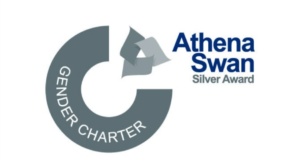Climate risks could slash 7% of corporate earnings by 2035

Image: Pixabay
Businesses must act now to address and adapt to growing climate risks such as extreme heat, or face steep financial losses, a new report warns.
According to the report ‘Business on the Edge: Building Industry Resilience to Climate Hazards’, the impact of climate change could drive fixed-asset losses of $560-610 billion per year across listed companies by 2035.
This is the equivalent of an annual 7% drop in average company earnings – around half the 15.3% decline in profits experienced during the Covid-19 pandemic.
Produced by the World Economic Forum in collaboration with partners including a research team from the University of Exeter Business School, the report provides a comprehensive assessment of risks and resilience strategies for boards, investors, C-Suite executives and operations managers.
It warns that climate hazards will disrupt every stage of supply chains, from sourcing to processing, distribution and consumption patterns.
It predicts that telecommunications and utilities industries will be hit hardest: on average, companies in these industries are expected to see fixed asset losses of US$518–563 million (20.3-22.1% of earnings) and US$204–233 million (20.7-23.6%) by 2035 respectively.
The first-of-its-kind report is designed to build a bridge between Earth system science and implications for business – from profitability to supply chain stability and the impacts to the societies they serve.
As five Earth systems face irreversible tipping points at current levels of warming, the report aims to help business leaders recognise that the longevity of businesses and economies is closely tied to the stability of societies and the natural environment in which they operate, and to act swiftly and collaboratively to decarbonize operations, invest in nature, build resilience and adapt to risks from climate hazards.
The report contains five landscape briefs that outline Earth system tipping point implications for business, focusing on land ice, sea ice, ocean circulation, coral reefs and permafrost.
Seven industry briefs give a more detailed view on the implications and recommendations for the most-impacted industries: agribusiness; food and beverages, utilities; infrastructure and transportation; telecommunications; life sciences; and travel.
The report also provides a comprehensive assessment of supply chain risks in five socio-economic systems: agriculture, the built environment, technology, health and financial services.
The University of Exeter Business School team that worked on the report was led by Professor Gail Whiteman, the report’s principal academic advisor, and included Dr Helen Millman, Hoffmann Fellow for the Polar Regions (World Economic Forum Contributor), and Professor Chendi Zhang, Director of the Exeter Sustainable Finance Centre.
Professor Whiteman said: “This report empowers business leaders by showing them the nature and extent of the risks posed to their organisations by climate hazards, and the resilience strategies that provide a pathway to sustainable economic and social prosperity amid changing Earth systems.”
Professor Whiteman is the University’s inaugural Hoffmann Impact Professor, a unique role focused on turbocharging industry support for low carbon action.
She added: “We’re aiming to bridge the gap between the scientific understanding of systemic change and the practical methods of delivery. There are currently insufficient tools available for business leaders to understand their impacts on nature and our climate, so this report meets an urgent need.”
Read the full report at https://www.weforum.org/publications/business-on-the-edge-building-industry-resilience-to-climate-hazards/



